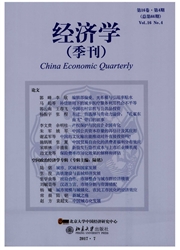

 中文摘要:
中文摘要:
本文考察了北京在2008年奥运会之后采取的限行政策对空气污染指数(API)、可吸入颗粒物(PM10)、二氧化氮(NO2)和二氧化硫(SO2)等空气质量指标的影响,虽然传统的OLS回归显示限行政策有很强的效果,当采用断点回归的方法解决其内生性问题后,限行政策尤其是"尾号限行"对空气质量的影响甚微。基于限行导致购车行为改变假设的成本—收益分析,初步估计限行给驾车出行者带来的年成本约为北京市人均GDP的3%,年总成本约为当年GDP总量的0.3%。
 英文摘要:
英文摘要:
This paper analyzed the impacts of Beijing's driving restriction policies during and after 2008 Olympics on a series of air quality indicators: API, PM10, NO2 and SO2 concentrations. Although OLS regression shows such policies are effective, after applying "Regression Discontinuity" (RD) method to solve endogeneity problems, we found driving restriction policies, especially the "one-day per week" restriction policy, had little impact on air pollution concentrations. Considering driving restriction might induce drivers to pur- chase a second car, we conducted a cost-benefit analysis and estimated the welfare cost is about 3% of per-capita GDP, or aggregated for 0.3~//00 of total Beijing GDP.
 同期刊论文项目
同期刊论文项目
 同项目期刊论文
同项目期刊论文
 期刊信息
期刊信息
